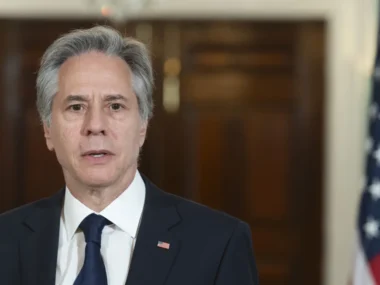In the latest twist of the ongoing trade and tech war between the United States and China, Beijing has unleashed a surprising directive: banning government officials, state employees, and entities from using iPhones. This move, while not officially announced, marks another volley in the escalating tensions between the two global giants.
China’s motives for this ban, albeit unofficial, raise several questions. It’s seen as part of a broader effort by both nations to reduce economic interdependence, prioritizing national security concerns over investment and trade. China, in particular, aims to bolster domestic technology companies like Huawei, which is challenging Apple’s supremacy with its Mate 60 Pro smartphone.
Some experts suggest that limiting iPhone use aligns with China’s cybersecurity commitments, as iPhones could potentially access local networks and gather sensitive environmental data. Despite previous efforts, technological limitations hindered these cybersecurity measures until recent advancements provided more confidence in their implementation.
Both the US and China view each other’s tech companies as potential security risks, capable of compromising sensitive data and government infrastructure. This tension has led to bans on Chinese-owned apps in the US and restrictions on US companies dealing with Chinese tech firms like Huawei.
The recent release of Huawei’s Mate 60 Pro, powered by the advanced Kirin 9000s processor, has raised concerns about the effectiveness of these export controls. US officials are scrutinizing the smartphone’s character and composition to assess compliance with relevant laws.
The consequences of this ban are far-reaching. Apple’s stock price plummeted nearly 6 percent, affecting its status as the world’s most valuable company. Additionally, the ban raises concerns for Western companies operating in China, adding to existing challenges such as intellectual property theft, government favoritism toward domestic competitors, and regulatory hurdles.
This move may prompt further doubt about doing business in China, even for Apple, which previously had a relatively stable relationship with Beijing. As foreign firms grapple with an increasingly hostile business environment and regulatory constraints, the ban underscores the challenges facing China’s post-pandemic recovery, which is grappling with deflation, export slowdowns, a real estate crisis, and high youth unemploymen











